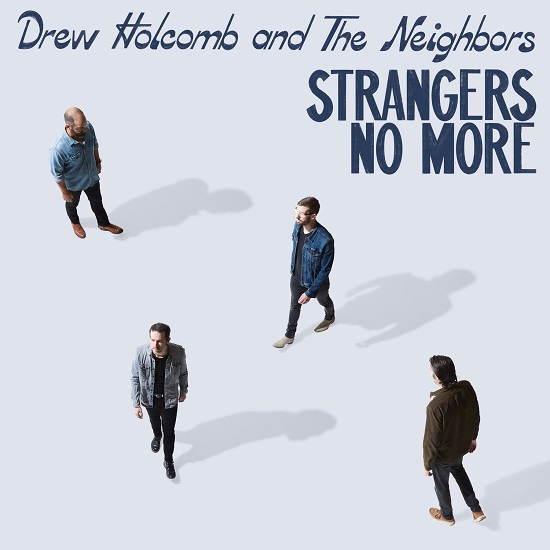
It’s just over three weeks since the World Health Organisation declared that COVID is no longer an emergency and a couple of years since it peaked, but the impact of the virus is still being felt, particularly in the fields of music and leisure. This Drew Holcomb and the Neighbors album was written on either side of the pandemic and pulled together in a way that couldn’t have happened during the emergency. Drew and his band spent eight days in a studio in Asheville NC, playing the songs live and searching for the perfect take. It’s a process with an element of risk but it works if you have good songs and good players; ‘Strangers No More’ has both of those in abundance. Lyrically, the album’s largely positive, emphasising the way forward rather than looking back, and reflecting Drew’s new outlook and more relaxed attitude to performance.
Drew Holcomb’s blessed with a versatile voice, equally at home on the tub-thumpers like ‘Dance with Everybody’ which hints at Springsteen, The Waterboys and Paul Simon’s African experiments, and the more reflective triple time ‘Gratitude’ with its soaring chorus and vocal that resembles Ian Matthews in the mid/late seventies. In fact, the seventies influence looms large throughout the album, sometimes where you least expect it. The album also showcases Drew’s vocal range and the band’s superb use of dynamics, shifting effortlessly from gentle acoustic arrangements to full-on widescreen E Street band arrangements; there’s plenty of variety, all held together by tight arrangements and the quality of Drew Holcomb’s voice.
And what about some of those other seventies references? ‘That’s On You, That’s On Me’ is a wake-up call song that opens with a nod to ‘Stuck in the Middle With You’ and moves on through rock guitar riffs with a country rock feel as the song progresses. ‘Possibility’ and ‘On a Roll’ both have an E Street Band feel while the latter also has a soundscape that seems to reference The Blue Nile. The big surprise is ‘Strange Feeling’, which opens with a ‘Darlington County’ style riff before, morphing into an early seventies Steely Dan sound complete with a guitar solo that could be the legendary Jeff Baxter.
Drew Holcomb and the neighbours succeed in pulling together a variety of styles and influences to create an album feels at the same time familiar and wholly original where everything is there to serve the song. This album will make you think, make you smile and make you want to dance like no-one’s watching – you can’t ask for more than that.
‘Strangers No More’ is released in the UK on Friday June 9th on Magnolia Music.
Here’s the video for ‘Dance with Everybody’:
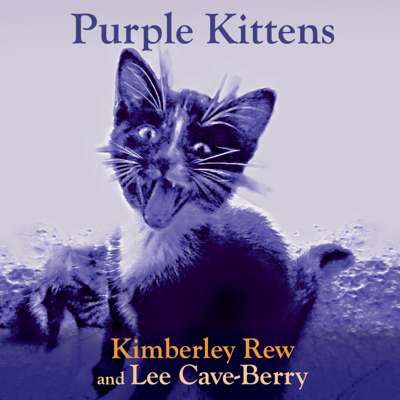
My first proper exposure to the work of Kimberley Rew was when I reviewed the retrospective, “Sunshine Walkers”, in 2020. There’s a theme running through that collection and “Purple Kittens” as well; a celebration of Englishness. Not the populist, flag-waving, “Vindaloo”-singing Englishness. Not that at all. It’s real ale at a riverside pub with the sounds of a skittle alley and maybe a Morris side performing. That kind of Englishness; the kind that’s celebrated by songwriters like Roy Harper and Ray Davies. So it’s appropriate that the album’s opener is “Penny the Ragman”.
The song’s a tribute to Kimberley’s late cousin, Penny, who, among other things, looked after the uniforms for a Morris side (a position known as Ragman) and was inspired by conversations at her wake. It’s a pretty good companion piece for The Kinks’ “The Village Green Preservation Society” as a celebration of a vanishing lifestyle. However, there’s a lot more to “Purple Kittens” than nostalgia; both Kimberley Rew (guitars and vocals) and partner Lee Cave-Berry (bass and vocals) are natural songwriters in the Nick Lowe mould, creating great songs out of eternal themes or the most mundane events and situations, even out of one repeated phrase.
Which is exactly what “Raspberry Ripple Ice Cream” does. Against a spiky, punky riff, the only lyrics are the title (apart from a slight culinary diversion into rum and raisin) sung by both Kimberley and Lee, and a bass solo. It’s just a bit of fun, but it’s done really well. “Black Ribbon” is more serious; it’s a rocking tribute to Roger Smith, of the Cambridge band Jack, who died of COVID last year. It was written by his two grandsons (aged six and eight) the ribbon of the title isn’t a mourning accessory, it refers to the band he wore round his Panama hat.
The Soft Boys cover, “Kingdom of Love”, is progressive and psychedelic with Kimberley/Lee harmonies in the chorus that evoke Nancy Sinatra and Lee Hazlewood, while Lee’s “Unsatisfactory Cats” is a whimsical Kirsty MacColl-tinted exploration of cat behaviour that cat owners/servants will identify with – I certainly did. “Wrong Song” uses the musician’s lot as a metaphor for our daily lives; live performance is a one-off thing and any mistakes are part of your history. You only get one try and you can’t fix it or remix it. There’s also a reference running through the song to Paul Simon’s “50 Ways to Leave your Lover”. Finally, “Daytime Night Time”, which closes the album, runs through the mundane cycle of life, from birth to death, in under five minutes (and that includes extended guitar riffing referencing Chuck Berry and Francis Rossi). It’s a joyous celebration of life and rock ‘n’ roll music.
“Purple Kittens” won’t be troubling the national album charts, but that won’t keep Kimberley Rew and Lee Cave-Berry awake at night. They make albums and play live for the sheer joy of it; that’s what they do and that in itself is worth celebrating. “Purple Kittens” is twelve songs celebrating lives, ways of life and sometimes just cats and ice cream, created and crafted with skill and joy, and a real love for this country. I’ll take that, thank you very much.
“Purple Kittens” is out now on KL Recording (KKL016).
Here’s the video for “Wrong Song”:
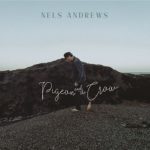 If you want reference points for “Pigeon and the Crow”, I’d go for something between “Sweet Baby James” and “Graceland”. It has the simple, laid-back feel of James Taylor and the experimental rhythms and instrumentation of Paul Simon’s classic. There’s a lot going on, but it never feels cluttered or claustrophobic. There’s something that sets this album apart from the two classics, and it’s the lyrical invention of Nels Andrews’ songs, which are mostly allegorical and metaphorical rather than following straight-line narratives and it makes for a very interesting mixture. It’s a compulsive and beguiling set of songs. And before we move away from the comparisons, you could say that there are hints of Jackson Browne, and Nels’ voice at times sounds a lot like Ian (or Iain) Matthews at the time he was trying to crack the American market in the seventies.
If you want reference points for “Pigeon and the Crow”, I’d go for something between “Sweet Baby James” and “Graceland”. It has the simple, laid-back feel of James Taylor and the experimental rhythms and instrumentation of Paul Simon’s classic. There’s a lot going on, but it never feels cluttered or claustrophobic. There’s something that sets this album apart from the two classics, and it’s the lyrical invention of Nels Andrews’ songs, which are mostly allegorical and metaphorical rather than following straight-line narratives and it makes for a very interesting mixture. It’s a compulsive and beguiling set of songs. And before we move away from the comparisons, you could say that there are hints of Jackson Browne, and Nels’ voice at times sounds a lot like Ian (or Iain) Matthews at the time he was trying to crack the American market in the seventies.
The press pack for the album contains a lyric sheet for the album (it’s in the album packaging as well), but also a very helpful set of writer’s notes for each song, which share the sort of detail you would never pick up on otherwise. “The Lion’s Jaws” is based on the story of an in-law who, at one time, was the only Jewish lion-tamer in history, which is an interesting coincidence, given that Scottish singer-songwriter Dean Owens (recently reviewed here) has also written about a not-too-distant ancestor who was a lion-tamer.
To get some idea of the musical variety of the album, you only need to take a look at the credits. There are thirteen musicians involved and a list of fourteen instruments (not including the many under the umbrella of percussion) from various musical traditions including kora, steel pan, harmonium and flute; it’s not just a lot of instruments, it’s a lot of musical styles melding together seamlessly by producer, flautist and singer Nuala Kennedy.
Highlights? The title song’s hard to beat, with its supernatural love story theme and its lilting Gaelic feel; the opener “Scrimshaw” in triple time and with mid-life memories of happiness and regrets is a perfect evocation of the singer-songwriter genre, and the slightly rockier “Table by the Kitchen” is a fiddle-led, fear-of-missing-out anthem satirising the me generation. What remains in the memory when you reach the end of the album, is the sheer variety of musical settings used to project these songs and support Nels’ mellifluous voice and the way that none of it seems out of place.
“Pigeon and the Crow” is out now.
 Well, I’ll say this for him, he’s in good nick for 74. Then again, he has looked after himself.
Well, I’ll say this for him, he’s in good nick for 74. Then again, he has looked after himself.
Al Stewart played the first Glastonbury. He knew Yoko Ono before John Lennon. Paul Simon was his next door neighbour and he’s exchanged songwriting notes with Leonard Cohen. Born in Glasgow, raised in Dorset, went to London to seek his fortune and settled in LA when it all ‘worked out.’
He’s a strange hybrid, really. A product of the BritFolk boom of the late sixties following the obligatory dalliance with British Beat groups in the early sixties, he, almost accidentally, once he’d come out of contract with his first major record company, morphed into a ‘staple’ of American FM radio, a classic of the ‘yacht rock’ genre. His vocals lend quite a lot to the Graham Nash ‘razorthroat’ school of glass-shattering clarity and he wrote songs. Lots of them. And one of them, finally and irrevocably, cracked America – and indeed the world – wide open for him.
This tour is with Chicago’s Empty Pockets, acting as opener for the man himself and also as his ‘Band’. As an act in themselves they’re a pleasant listen, a bit soppy maybe for a cynical old BritBloke and despite some excellent electric piano and some guitar to relish, not entirely convinced about the male/female harmonies which seemed a little harsh at times.
However, as the ‘Al Stewart Band’, in effect, they proved to be just the ticket, a perfect compliment and support to one of Britain’s greatest living ‘Heritage’ songwriters.
An unmemorable first tune – disarmingly ‘fessed up’ to as such by Stewart who claimed nobody’s interested in the first tune anyway; they’re too busy seeing if you’ve got any hair left etc – soon gave way to a sumptuous “Flying Sorcery” which is a beautifully fresh, naïve-sounding song which just picks the listener up and sweeps them off. And straight away it’s pretty clear this won’t be a hair shirt fest – it’ll be a celebration of those radio-friendly specials which were beautifully produced and are just sumptuous.
This kicked straight into “Time Passages”; album title track and Billboard top ten hit single. Refreshing as an upland winter walk it was a gorgeous listen live with fabulous sax solos – which this song MUST have to work – and thick layers of wrap – around keyboards, this brought the house down, even this early in the set.
It isn’t all good news, though. This is the 20th gig of a 21-date UK tour. A big ask for a bloke in his mid-seventies and a band from Chicago who by their own admission were feeling seriously homesick. Not sure if this was the reason – or if age had just caught up with the vocal chords and squashed his range so he can’t quite reach those stratospheric upper octaves, I don’t know – but, and to an extent to his credit, he didn’t rely on the younger harmonies to cut in to sustain and ‘replace’ his voice, he just put his own voice out there and although on occasion this meant slightly strange harmonic arrangements to get through some songs, I didn’t spend the night cringing for him.
An early high point was “On The Border”, reached number 42 on Billboard and the ‘breakers’ in the UK (I’ve still got the demo 45 vinyl) with the spine-rattling bass intro and fiery Spanish guitar and as a listener you’re reminded of how timeless and relevant many of these songs still are. Somehow a song about the Spanish civil war throws light on Brexit (‘in the islands where I grew up nothing seems the same’, anyone?) Or Syria. Pick and mix your own analogy. A rich and fulfilling listen, by now he has the audience eating out of his hand, a relationship which he then cemented by responding to a holler from the audience for “Brooklyn”, an ‘old one’ from more folky times, which could only be played by himself and one band member as no-one else knew the song! Now there’s spontaneity…..
“Broadway Hotel” was the B-side of the UK “Year of the Cat” single and here the keyboards ‘roll’ beautifully. It’s just a great song about a sort of ‘accidental’ seduction.
“Almost Lucy” follows, another irresistible song from “Time Passages” which references in terms of content if not style, the early folk club days. By now I am truly in awe at how well this stuff is translating onto stage; but why should this be? He’s just played over 100 US and 20 UK gigs with this band, this body of work (with variations!) – you’d expect an experienced trouper like Stewart to nail this – and he does just that. Otherwise, and at the age of 74, why do this to yourself?
I always think it is asking for trouble, playing human jukebox to audience shouts, but he seems quite at home with this form of Russian Roulette, even when some Muppet yells out “Year of the Cat” (like, he’s really not going to play THAT one, right?) and settles on “Clifton in the Rain” which really is folky, whimsical stuff going back to the sixties. Bit twee for me, but, if that’s what floats your boat…..which segues into the vignette poem “Small Fruit Song” for a few seconds prior to the audience applauding warmly, as they had more or less all night. He really is Going Down Well.
The track before “Year of the Cat” on said album is “One Stage Before” and that’s the order they are dealt tonight. The latter is a troubadour song; the way an audience is seen by an artist – and it isn’t always as a bunch of woolly sweater wearers eating ice cream tubs, as it turns out. And it’s another great song, spiced up by some great guitar and keyboard work by the Empty Pockets.
Prior to the captivating keyboard intro to the main event, (otherwise known as the greatest FM airplay tune of all time and no, I am not exaggerating) Stewart tells us the story of “Year of the Cat”. Along with various English folkies and ex-folkies who had some success, (Steeleye Span, Incredible String Band, Insert Name Here), he’d been shipped out to the US and hadn’t gotten very far, as tended to be the way. And then he found himself opening for Linda Ronstadt, which was a great opportunity. It worked fine in the more liberal North and West, but they hated him with a vengeance in the southern states, where an eight-minute song about the Russians, introduced as a ‘Country and Eastern song’ very nearly got him killed. So he went off to invent something which might have a broader appeal…and found one of the band members messing about with a particular progression….which they then chucked just one note into, and then he wrote some enigmatic, seductive, shape-shifting lyrics…and after a whole lot of work by producer Alan Parsons, he came up with and again I say it the single best FM radio playlister, ever. Got to number five on Billboard, even got to number 31 in tone-deaf Britain where we were still transitioning from glam to punk, and it wasn’t a good look…and it eventually drove the album, and the follow-up album, platinum. Slow burner, but now almost every UK radio station playing AOR love songs will now feature this as a staple alongside Billy Paul’s “Me and Mrs Jones” and Fat Larry’s Band and “Zoom”. Serving Suggestion. His conclusion (elsewhere) that he’d decided once he’d heard the final mix that if this wasn’t a hit, he couldn’t write a hit, proved very astute and possessed of an understanding of self which most musicians don’t seem to value.
Any slight misgivings about the slight lack of flexibility and range in the vocals are quickly disarmed by the ferocity and style of the guitar solo, the fluidity and drama of the main sax break, and the percussive but wandering piano fills and frills. It isn’t perfect, you’d need a whole bunch of strings for that and a voice that hadn’t been lived-in for quite so long but on balance this was one of my favourite five musical minutes of the year so far.
Difficult to know how you’d ‘ace’ that for an encore but “If It Doesn’t Come Naturally, Leave It” (also from “Year of the Cat”) sounded like a fair call – described by Stewart as a ‘sort of Bruce Springsteen pastiche’ and being played like that tonight, it did the job well, especially when followed as a parting shot by a newish tune about growing old; ‘Getting out of the box that you made of your life….you’re young again!’ I’ll drink to that.
It’s fair to say the lad’s come a long way from Bournemouth. Soon after “Year of the Cat” broke out, he moved to LA to live – and stayed there. Cue the sneers? Well, you would, wouldn’t you? Al Stewart; well-travelled, intelligent, articulate and with a great sense of historical and artistic perspective, this elderly troubadour reaches parts other singer-songwriters can’t reach.
And thanks for “Year of the Cat”. You made me a lot of money playing a beautiful song to a lot of people a lot of times. And the wonder is, it never felt like it.
 Just imagine a world where everyone placed a value on music – let’s go the whole hog; all of the arts. A world where everyone was willing to pay for the privilege of listening to music that was lovingly crafted by gifted individuals. A world where ‘making it’ isn’t about being the least mediocre Whitney wannabe on a Saturday evening TV show before milking your fifteen minutes (which has probably been devalued to about six and a half minutes now). In that world Joe Francis would be playing packed-out stadium gigs with a ten-piece band and selling albums by the container-load. But that’s not where we are
Just imagine a world where everyone placed a value on music – let’s go the whole hog; all of the arts. A world where everyone was willing to pay for the privilege of listening to music that was lovingly crafted by gifted individuals. A world where ‘making it’ isn’t about being the least mediocre Whitney wannabe on a Saturday evening TV show before milking your fifteen minutes (which has probably been devalued to about six and a half minutes now). In that world Joe Francis would be playing packed-out stadium gigs with a ten-piece band and selling albums by the container-load. But that’s not where we are
Where we are is the last knockings of 2018 in the basement of The Slaughtered Lamb in Clerkenwell. Joe’s stripped back the Winter Mountain song arrangements to a duo format and he’s accompanied by Cornish guitar virtuoso Sam BF. But I’m getting a little bit ahead of myself now, before the Winter Mountain duo do their thing, we have not one but two support artists, Kira Mac and Polly Money.
Kira’s a country singer-songwriter from Manchester; she’s completely engaging live, combining originals and covers. “My Tiny Town” and “Bad News” hold their own against Dolly Parton, Katy Perry and Fleetwood Mac covers. Apparently her band doesn’t like the new song “Bad News”; ignore them Kira, it’s a great song.

Polly Money, from Cornwall apparently, delivers something completely different. While Kira’s backing was acoustic guitar, Polly (dressed in all white) wields a white Strat and weaves some lovely picking through her beautifully soulful vocal lines. The guitar sound is gorgeous, clean and thickened up with a chorus pedal; can you imagine the guitar of John Martyn and the vocal of Corinne Bailey Rae? That’s as close as I can get. And on to Joe.
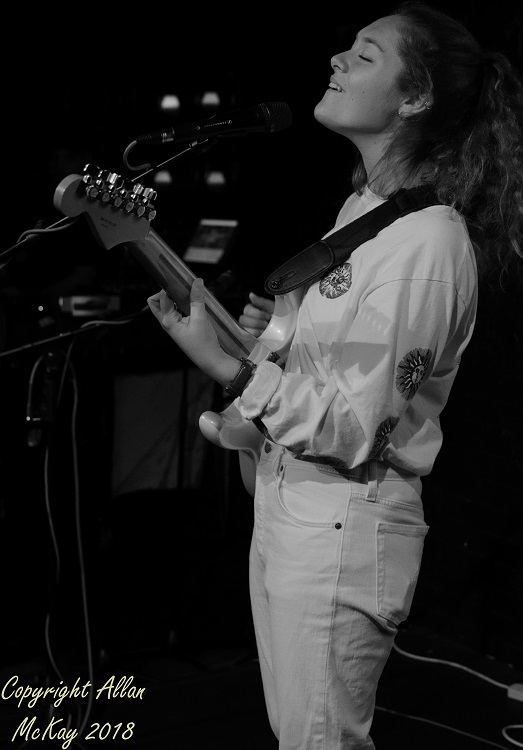
From the opening notes of the Springsteenesque “Sunlight, Good Roads”, it’s a blast. This is the real thing, the genuine article. With Joe’s powerful rhythm guitar and Sam BF’s hooks, fills and solos. In a small venue like this, who needs drums and bass? And what about Joe’s voice? It’s powerful and impassioned; sometimes you can hear Mike Scott, sometimes you can hear Bruce Springsteen but mostly you can hear Joe Francis. What you always hear is total commitment.

It’s not just a runthrough of Winter Mountain greatest hits; Joe loves to wing it and throw in the unexpected. Alongside “Girl in the Coffee House”, “Banba’s Crown”, “The January Stars”, “Things That I’ve Done Wrong” and “Kissing in the Rain” (all classic songs), he throws in the Paul Simon classic “Diamonds on the Soles of her Shoes” and quick references to the Bruces, Springsteen and Hornsby (oh, and Led Zeppelin’s “Black Dog”). It’s powerful, emotional and cathartic; you really should really try to catch Joe live whether it’s solo, duo or with the full band.
How elated was I after the gig? I swear I flew.
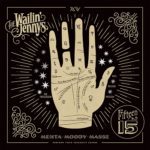 This was the first album I listened to on January 1 2018. Kind of appropriate really; after hearing so much beered-up musical stodge over the festive period, this is the perfect aural January detox to accompany the real thing. The Wailin’ Jennys (Heather Masse, Nicky Mehta and Ruth Moody) have been together fifteen years (hence the title), but this is their first album in six years. It’s worth waiting for; it’s gorgeous. They interpret nine very different songs but the common thread running through all of them is those three fabulous voices and the heartbreakingly pure harmonies. It’s possible I might mention that again at some point.
This was the first album I listened to on January 1 2018. Kind of appropriate really; after hearing so much beered-up musical stodge over the festive period, this is the perfect aural January detox to accompany the real thing. The Wailin’ Jennys (Heather Masse, Nicky Mehta and Ruth Moody) have been together fifteen years (hence the title), but this is their first album in six years. It’s worth waiting for; it’s gorgeous. They interpret nine very different songs but the common thread running through all of them is those three fabulous voices and the heartbreakingly pure harmonies. It’s possible I might mention that again at some point.
Everything is built around creating a setting for those flawless voices to deliver interpretations that are technically and emotionally perfect. Generally speaking, the musicians have a fairly light touch throughout the album; this is all about putting those three voices straight upfront and centre. When full string band arrangements are used, they tend to build up in layers to push the song to a higher level, which works particularly well on the timely cover of Tom Petty’s “Wildflowers” and the Jane Siberry song, “The Valley”. “Boulder to Birmingham”, Emmylou Harris and Bill Danoff’s plaintive elegy to Gram Parsons has a full band sound with some lovely two-guitar picking and percussive upright bass; none of it threatens to overwhelm the vocals.
For all the subtle and delicate playing, the a cappella or virtually a cappella material that really shines brightly. Paul Simon’s “Loves Me like a Rock” gets the handclap and fingerpop treatment, Dolly Parton’s “Light of a Clear Blue Morning” begins with a solo vocal before the stunning harmonies join, but the best is saved till last. The album’s final song is an a cappella cover of Hank Williams’ “Weary Blues from Waitin’” which not only has the expected beautiful three-part harmonies but features some incredibly precise three-part glissando harmonies. I have honestly never heard that done with such precision.
So now you’re going to ask if I like it, yeah? What a great way to start the year. But you don’t have to take my word for it; a click on any of those song links will take you to Spotify where you can hear it for yourself.
“Fifteen” is released on True North Records on Friday January 5 2018.
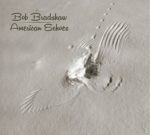 It’s a musical ‘all you can eat’ buffet; a long-time outsider’s view of American popular music exploring some of the high protein meat dishes, but meandering through some of the more delicately flavoured and textured dishes as well. To add to the complexity, it’s a set of songs created by a self-taught musician who also happens to have studied for a popular music degree. Sophistication and raw rock power are both on the menu for this musical feast. On his previous album, “Whatever You Wanted”, Bob Bradshaw saved the best (in my opinion) for last, closing the album with the wonderful road song, “The Long Ride Home”. On “American Echoes”, he opens with the lovely, acutely-observed “Exotic Dancers Wanted”; all of smalltown America is there as he melds Tom Waits with Bob Seger’s “Mainstreet” to create a quiet classic of a song about desperation, drugs, booze and pole-dancing. He even throws in a W.B. Yeats reference.
It’s a musical ‘all you can eat’ buffet; a long-time outsider’s view of American popular music exploring some of the high protein meat dishes, but meandering through some of the more delicately flavoured and textured dishes as well. To add to the complexity, it’s a set of songs created by a self-taught musician who also happens to have studied for a popular music degree. Sophistication and raw rock power are both on the menu for this musical feast. On his previous album, “Whatever You Wanted”, Bob Bradshaw saved the best (in my opinion) for last, closing the album with the wonderful road song, “The Long Ride Home”. On “American Echoes”, he opens with the lovely, acutely-observed “Exotic Dancers Wanted”; all of smalltown America is there as he melds Tom Waits with Bob Seger’s “Mainstreet” to create a quiet classic of a song about desperation, drugs, booze and pole-dancing. He even throws in a W.B. Yeats reference.
To keep the culinary metaphor on the boil, “American Echoes” is a smorgasbord of musical stylings, or a pick ‘n’ mix if prosaic is your preference. It ranges all the way from the out and out rocker “Weight of the World”, with its huge riff, two guitars and The Who stylings to the acoustic ballad “Stella” with a Chris Izaak guitar sound and a vocal that’s a dead ringer for Elvis Costello in lower-register ballad mode.
There’s a bit of lyrical invention as well, to match the musical melange. “My Double and I” is a modern take on the Jekyll and Hyde theme matched up with a laid-back New Orleans jazz groove (with a nod towards Steely Dan’s “East St Louis Toodle-oo”), while “Working on My Protest Song” combines the kind of rhythms Paul Simon discovered in Africa with a mildly sarcastic dig at musicians who opportunistically appropriate protest movements for their ends. And the list goes on.
The bottom line is that Bob Bradshaw has produced another very fine album indeed. “American Echoes” is packed with great lyrical and musical ideas and gets better with repeated plays.
“American Echoes” is released in the on UK Fluke Records on Friday October 20.
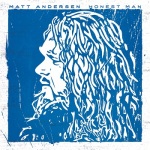 You barely make it past the intro of the album’s opener, “Break Away”, before it hits you; Matt Andersen has a phenomenal voice. It’s a rich baritone from the same mould as the great Paul Carrack and it’s the perfect vehicle for this set of songs harking back to the glory days of Stax and Atlantic. Matt’s previous work has been filed under blues, but there’s no doubt at all that this is a soul album (with a few detours into reggae rhythms and a hint of seventies rock). The album has a lot in common with last year’s Southside Johnny classic “Soultime!” in that they’re both inspired by the glory days of sweet soul music; you can find little references to all sorts of artists and styles throughout the album, but it’s ultimately held together by that superb voice.
You barely make it past the intro of the album’s opener, “Break Away”, before it hits you; Matt Andersen has a phenomenal voice. It’s a rich baritone from the same mould as the great Paul Carrack and it’s the perfect vehicle for this set of songs harking back to the glory days of Stax and Atlantic. Matt’s previous work has been filed under blues, but there’s no doubt at all that this is a soul album (with a few detours into reggae rhythms and a hint of seventies rock). The album has a lot in common with last year’s Southside Johnny classic “Soultime!” in that they’re both inspired by the glory days of sweet soul music; you can find little references to all sorts of artists and styles throughout the album, but it’s ultimately held together by that superb voice.
The album opens with the Hammond-led gentle reggae feel of “Break Away” which hints at “Graceland”-era Paul Simon and The Staples’ “Come Go with Me”, moves into the slow and subtle soul of “The Gift” with its beautiful cascading guitar before the title track throws a whole bunch of influences into the blender. “Honest Man” opens with a riff that’s not a million miles from “Crossroads”, develops with some Memphis Horns-style brass (including the trademark rasping baritone sax) and drops into a chorus with backing vocals which could have been inspired by Don Henley’s scathing “Dirty Laundry”.
So, you get the picture; the album pulls dozens of influences into the blend without ever sounding derivative. “All the Way”, with its hint of a reggae beat, languorous vocal and wah-wah guitar has a hint of seventies Clapton, “Last Surrender” has echoes of Sam Cooke and “Who Are You Listening To?” suggests late seventies Bob Seger, both musically and lyrically. It’s a celebration of some of the classic stylings from our musical history combined with a bunch of well-constructed contemporary songs.
There are a few political and social references, but the songs cover a variety of lyrical themes including love and friendship. “I’m Giving In” is a haunting piano ballad with an intimate, late night vocal while the album’s closer, “One Good Song”, describes the things that a songwriter would suffer to create the one song that makes an audience stop and listen. It’s fair to say that he’s done that a couple of times on this album with the title track and “Last Surrender”. “Honest Man” is a joyous piece of work placing a superb soul voice in settings which demonstrate its quality to perfect effect.
“Honest Man” is released on True North Records (TND612) on April 1st.


